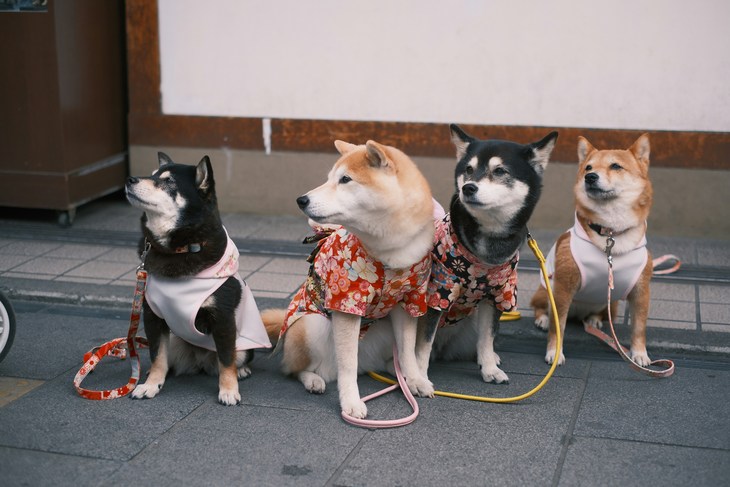What to Know About Pet Sitting in Japan
Japan is a pet-loving country, but when it comes to leaving town for a few days, many pet owners, especially new residents of Japan, aren't sure what options are available. While traditional kennels (known as pet hotels in Japan) exist, more people are turning to in-home pet sitting services in recent years.
In this article, let's look at some important things to know about pet ownership in Japan, how pet sitting culture is evolving, and how to choose the right sitter for your animal companion.
Important Things to Know About Owning a Pet in Japan
Before learning about pet sitting services, it's worth understanding a few key points about pet ownership in Japan. From housing restrictions to legal requirements, owning a pet here comes with responsibilities. Here are a few things to keep in mind.
・Not all housing is pet-friendly. Even if you have a small dog or cat, you'll need to confirm that your apartment allows pets. Some buildings allow pets with extra fees or deposits, while others have strict no-pet policies.
・Registration is required. All dogs must be registered with the local city office, and rabies vaccinations are mandatory once a year.
・Pet etiquette is taken seriously. In public, dogs must be on a leash, and owners are expected to clean up after them. Barking or disruptive behavior, even inside your apartment, may lead to complaints.
・Transportation has rules. Pets are generally allowed on public transport, but only if they are in a carrier. Taxis and ride-sharing services may or may not allow animals--always confirm in advance.
・Emergency services can be limited. Not all veterinary clinics are open 24/7, and finding English-speaking vets may be difficult depending on your area--especially outside of major cities.
For a deeper look at pet ownership in Japan, check out our full guide on the subject here.
The Culture of Pet Sitting in Japan
Pet sitting isn't a new concept, but its acceptance in Japan has grown significantly in recent years. Here's a quick look at the changing landscape.
・From family help to professional care
In the past, most pet owners would ask relatives or neighbors to help out when they were away. The idea of hiring a stranger to enter your home and care for your pet was less common. However, with more people living alone or in small families, the need for professional pet sitters has grown.
・Privacy and trust are big considerations
Japanese culture places a high value on privacy, so inviting a sitter into your home is not a decision taken lightly. To build trust, many professional services share detailed staff profiles, conduct background checks, and offer training certifications. Some also provide live updates with photos or short messages during each visit.
・Professional standards are on the rise
While not fully regulated yet, Japan's pet sitting industry is developing more structure. Organizations like the Japan Pet Sitter Association offer training programs that cover pet behavior, first aid, and ethical guidelines.
・What services do pet sitters offer?
Many sitters offer more than just feeding and walking. Services often include:
- Exercise and playtime
- Companionship to reduce stress
- Health checks for signs of illness
- Light housework like watering plants or collecting mail
The flexibility of in-home pet sitting is one of the main reasons it's gaining popularity--especially for pets who get anxious in unfamiliar environments.
Tips for Choosing the Right Pet Sitter in Japan
Finding a sitter you trust can feel daunting, but these tips can help you choose the right fit for your pet.
・Look for certifications
While not legally required, certifications from groups like the Japan Pet Sitter Association show a commitment to professionalism. These programs typically include training in first aid, animal behavior, and safety.
・Choose someone with experience with your pet type
Make sure your sitter is familiar with your kind of pet--whether it's a large dog, a cat, or even a bird or rabbit. Don't hesitate to ask about their background with similar animals, including any experience handling medical needs or daily routines.
・Ask for references or reviews
Reputable sitters should have reviews from past clients or be able to provide references. These can give insight into how well the sitter communicates, follows instructions, and how well they bond with pets.
・Check their communication style
Most pet owners appreciate regular updates while they're away. Make sure the sitter is willing to send you photos, videos, or messages during each visit. This can go a long way in offering peace of mind.
・Arrange a pre-visit (mendan)
A preliminary meeting lets your sitter meet your pet, learn your routine, and go over any emergency contacts. It also gives you a chance to see how your pet reacts to them.
・Confirm insurance and contracts
Trustworthy sitters or services usually offer written agreements and may carry liability insurance. This protects both you and the sitter in case of accidents or emergencies.
Whether you're heading out of town for a weekend or just working long hours, having a reliable pet sitter can make a big difference. With a bit of preparation, you can travel with confidence knowing your pet is in good hands.
Be sure to do your research, meet in advance, and choose a sitter who makes both you and your pet feel at ease.

























